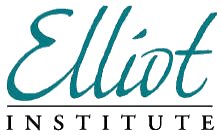For Immediate Release
March 7, 2006
Human Engineering Ban Initiative Filed for November Election
Coalition Seeks to Regulate Genetic Alteration of Humans
Jefferson City, MO (March 2, 2006) – An initiative to amend the Missouri constitution to erect a preemptive ban on human engineering, defined as any act that genetically alters human gametes or “nascent human life,” has been filed with the Secretary of State’s office. The initiative is being put forward by the Coalition to Regulate Human Engineering and Human-Animal Crossbreeding.
According to Dr. David Reardon, a biomedical ethicist and spokesperson for the coalition, the proposed amendment will get the “loose cannons” in bioengineering, including some Nobel Laureates, under control. He includes among the “loose canons” those who envision creating human-animal hybrids, “super-babies,” and deliberately brain-damaged babies for use as organ donors.
“These proposals sound like science fiction, but a large group of influential scientists and businessmen are diligently working to turn them into our reality,” said Reardon, a resident of St. Charles, MO and director of the Elliot Institute, which has offices in St. Charles and Springfield, IL.
“These visionaries have signaled their intent to pursue radical biotech endeavors and earn billions through the creation of genetically enhanced ‘super-babies,’” he said. “They have the money, the brainpower, and the motivation to pull it off. Plus, in their rush toward patents and profits, they’re cutting corners. Worst of all, there is not a single law standing in their way.”
“The human genome is so complex we know Murphy’s Law will apply. There will be countless mistakes and unintended effects,” said Reardon. “Experts are already warning that experiments mixing human and animal genes are likely to speed the cross over of animal viruses into humans, like has happened with the bird flu virus.
“Despite these warnings, experiments in swapping human and animal genes continue. Waiting to stop these risky experiments until after a pandemic breaks out will be far too late for the millions who will suffer. ”
The coalition’s goal is to reverse the legal presumption that any experiments that involve altering human genes and human embryos that are not specifically banned are legal. The proposed initiative would erect a preemptive ban on nearly all possible forms of human engineering. It allows exceptions for only a few narrowly defined cases where a genetic manipulation is intended to cure a disease and the treatment has already been proven in animal experiments. Any further exceptions would require the approval of voters.
“Our proposal will allow and encourage ethical experiments with animals,” Reardon added. “But before these technologies can be used on people, scientists will have to come to the voters to convince us that using these technologies on humans is wise and beneficial.”
“The whole point of erecting this preemptive ban is that voters should have a say about which future biotechnology will take us to. The ramifications of these technologies are too profound to be left to individual decisions of scientists or biotech entrepreneurs. Voters should get the final word on whether these human engineering projects are good for society.”
The group is launching its first initiative in Missouri to capitalize on the state and national attention already being paid to the stem cell cures initiative sponsored by the Missouri Coalition for Lifesaving Cures.
“With Missouri voters beginning to focus on the issues of stem cells and cloning,” Reardon said, “this is a great time for voters to start grappling with the larger picture of where we want to go with all of the possibilities that advances in biotechnology offer us. We’re not against progress, only against the short-cuts and loose cannons which will inevitably lead to mistakes and disasters that will hurt thousands or even millions of people.”
While the initiative in Missouri is the coalition’s first effort, it is preparing to pursue this same strategy through proposed referenda, legislation, and treaties worldwide.
Organizations and concerned citizens who support regulation of human engineering are encouraged to become members of the Coalition to Regulate Human Engineering and Human-Animal Crossbreeding and can learn more about it at www.elliotinstitute.org.
# # #
Interested reporters and
editors should contact:
Amy Sobie
Springfield Office
(217) 525-8202



